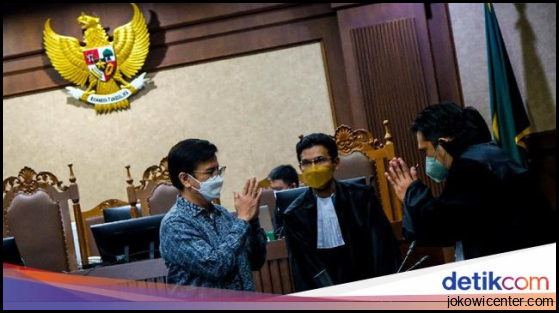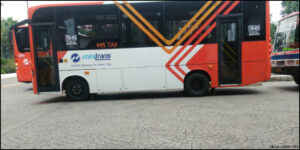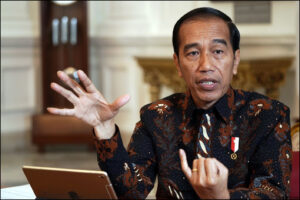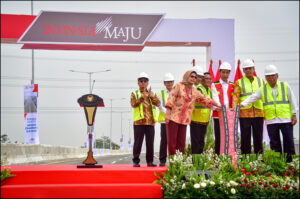Korupsi DKI Mengakar: Graft and Its Grip on the Jakarta Capital Region
Corruption has long plagued governments around the world, but few places have experienced its grip as deeply as the Jakarta Capital Region (DKI) in Indonesia. Known for its vibrant culture and bustling economy, DKI is unfortunately also home to endemic corruption that permeates every level of society. From misappropriation of funds to bribery and nepotism, corruption remains a significant challenge that hinders development and erodes public trust in governmental institutions.
The Anatomy of Corruption
Corruption takes many forms within the DKI region, manifesting itself across various sectors. Public officials often abuse their power for personal gain, while businesses engage in illicit practices to secure contracts or gain unfair advantages over competitors. This pervasive issue affects both civic life and economic prosperity in DKI.
Graft: A Systemic Disease
Graft has become ingrained within the fabric of DKI’s governance structure. The opacity surrounding decision-making processes coupled with a lack of accountability contribute to an environment ripe for corruption to thrive. The absence of effective checks and balances provides ample opportunities for public officials to exploit their positions without fear of consequences.
Moreover, corruption within the bureaucracy obstructs public service delivery, hindering efforts to improve living standards for residents. Funds intended for essential services such as healthcare, education, and infrastructure often find their way into the pockets of corrupt individuals or get misused through inflated project costs.
Bribes and Kickbacks: The Currency of Corruption
In DKI, bribes and kickbacks play a significant role in fueling corruption at all levels. Public officials often demand gratuities or bribes before providing necessary services or facilitating bureaucratic processes. These illicit payments not only burden citizens financially but also erode their trust in the government’s ability to serve their needs impartially.
Industries such as construction and procurement are particularly vulnerable to corruption due to the large sums of money involved. Businesses seeking contracts often succumb to bribery demands, in turn increasing project costs and compromising the quality of public infrastructure. This vicious cycle perpetuates a culture of corruption that is hard to break.
Tackling Corruption Head-On
The fight against corruption demands a comprehensive and multi-faceted approach that targets various root causes within DKI’s governance system. By implementing effective measures, it is possible to curb corruption and restore public confidence in the region’s administration.
Strengthening Legal Frameworks
One crucial step towards combatting corruption involves strengthening existing laws and regulations. Developing a robust legal framework that holds corrupt individuals accountable can act as a deterrent, discouraging potential wrongdoers from engaging in illicit activities. Additionally, enforcing strict penalties for those found guilty of corruption can send a clear message that such behavior will not be tolerated.
Promoting Transparency and Accountability
Transparency plays a pivotal role in tackling corruption within DKI. Enhancing transparency mechanisms through initiatives like open data policies and public access portals can empower citizens to scrutinize public expenditure and hold officials accountable for their actions. Moreover, ensuring transparency during government procurement processes reduces the likelihood of kickbacks or embezzlement.
Encouraging Whistleblowing
Whistleblower protection laws need strengthening within DKI to incentivize individuals with knowledge of corrupt practices to come forward without fear of retribution. Providing secure reporting channels like hotlines or online platforms safeguards whistleblowers’ identities while allowing them to expose corrupt activities that would otherwise go undetected.
A Call for Long-lasting Change
Addressing corruption in DKI requires a collective effort from citizens, civil society organizations, and the government. It is imperative to foster a culture that encourages integrity and ethical behavior across all sectors. In addition to proactive measures, cultivating moral values within society can help tackle the deep-seated roots of corruption.
Education and Awareness
Raising awareness about the detrimental effects of corruption is crucial in building a strong foundation for change. Educational programs targeting schools, universities, and communities can inform individuals about the consequences of corruption and inspire them to resist engaging in or supporting corrupt practices. Instilling ethical values early on can shape future generations of leaders committed to combating corruption.
Collaboration with International Organizations
The DKI government should consider partnering with international organizations specializing in anti-corruption efforts. These collaborations allow for knowledge exchange, capacity-building initiatives, and access to best practices from countries that have successfully tackled corruption challenges. By leveraging global expertise, DKI can accelerate its progress towards eradicating corruption within its borders.
In conclusion, tackling korupsi DKI remains a formidable task that requires unwavering commitment from all stakeholders involved. To restore public trust and drive sustainable development, it is imperative that comprehensive strategies are implemented to fight corruption at its core. Only through collective efforts can DKI reclaim its rightful place as an exemplar of integrity and good governance.






